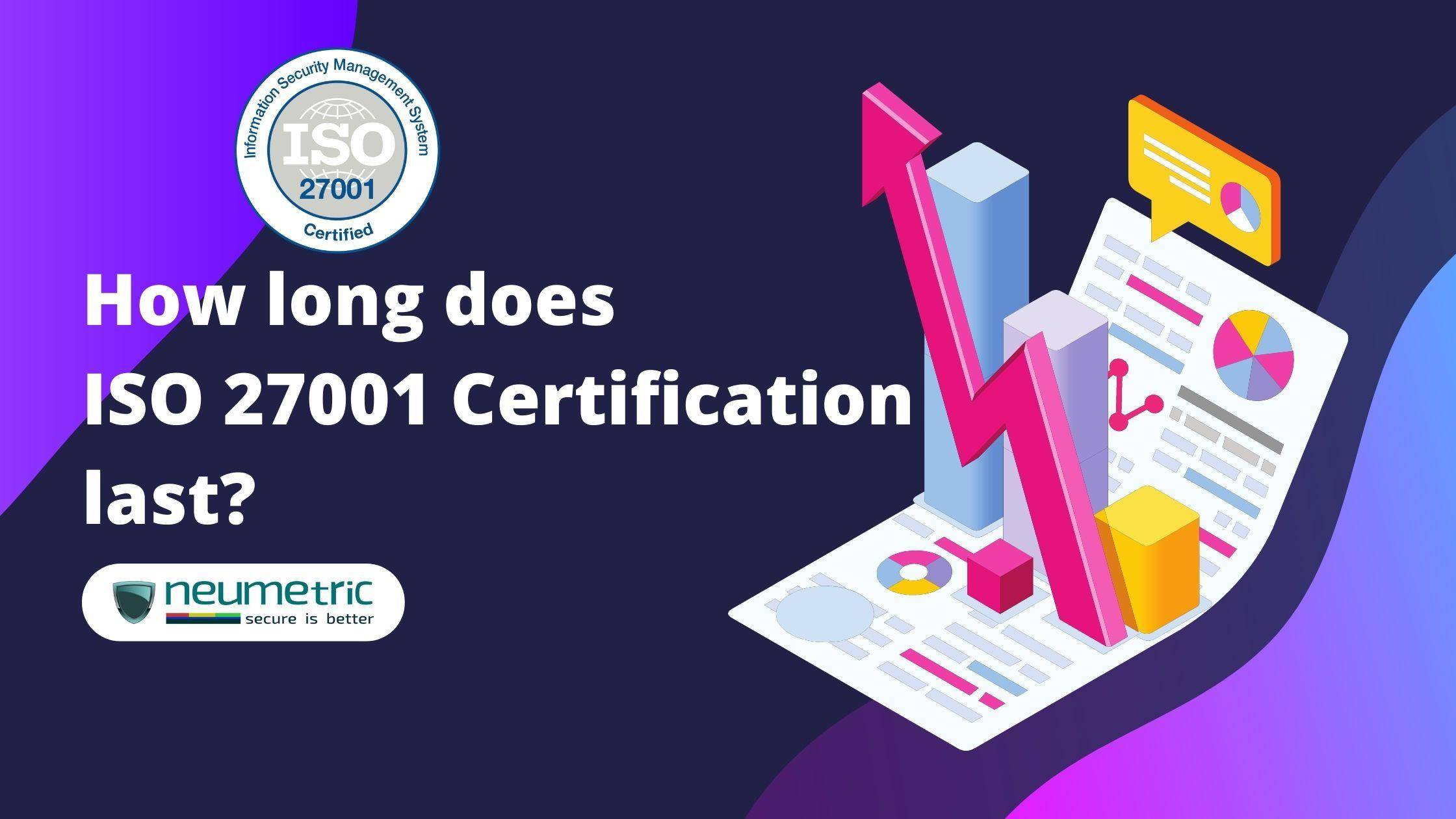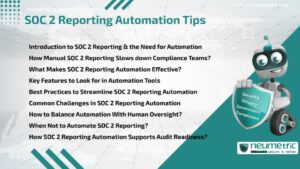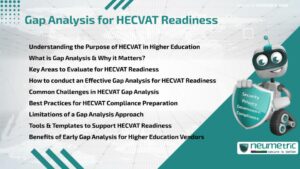Table of Contents
ToggleIntroduction
The ISO 27001 standard is a framework that helps companies establish security of their information assets. IT is an international standard for Information Security Management Systems [ISMS]. An ISMS is a framework for managing information security. It helps an Organisation identify, analyse and protect its assets from threats. The ISO 27001 standard provides guidelines to Organisations on how to implement and maintain an ISMS that meets their specific needs. ISO 27001 does not cover all aspects of information security, but it does provide a process for implementing an effective ISMS that can be tailored by Organisations to their unique requirements and risks.
Once you have been certified to the ISO 27001 standard, it is important to maintain that certification. This means ensuring your company’s security policies and procedures are up to date with any changes in technology or legislation. It also means keeping your audit logs up-to-date and your employees trained on their responsibilities under the standard. So how long does the ISO 27001 Certification last? Let’s take a look.
How long does ISO 27001 Certification last?
The first thing to note about the ISO 27001 certification is that it isn’t a one-off process. You can’t just get certified and then expect to be compliant forever. Instead, your company needs to undergo an annual audit (which is also known as surveillance audit) in order to maintain certification. The standard specifies that this should be done every year or two years depending on the size of your Organisation and what type of industry you are in (e.g., financial services would need more frequent audits than manufacturing).
The ISO 27001 certification is valid for 3 years. You will therefore need to pass two annual audits during that time to stay certified, or else your certification will expire. If you don’t pass the audit, it’s possible to apply for an extension, but that costs money and it can take up to a month before you hear back about whether your application has been approved or rejected.
If you do not renew your ISO 27001 certification within its three-year validity period and fail all subsequent audits, then there is no way of reinstating your certificate without going through another full audit process (which involves paying again).
After the first three years of being certified, you have to undergo a re-certification audit which is essentially the same as an initial audit, except that you’re checking to see if your Organisation has maintained ISO 27001 compliance since the last time it was certified. This audit is usually done by an independent third party auditor who will either be accredited by accreditation bodies (BSI or TÜV Sud) or one of its international partners. The cost of this audit varies depending on where you live and what kind of business you operate (how many people work for you, etc.).
How Long Does It Take To Implement ISO 27001?
The answer depends on the size of your company and how many people you have. For example, a small company might be able to get everything done in six months. A large company with lots of people and data may take up to 12 months. Some of the factors that decide how long it takes are:
- The size of your company, including the number of people and data.
- How many data centres do you have?
- How complicated is your technology infrastructure?
- What kind of security policies does your Organisation already have in place?
- How quickly you can get management buy-in from all levels.
- How much data you collect, process and store (the more data, the longer it will take)
- How much experience you have with IT security and risk management to implement ISO 27001
- How many third parties you deal with (the more third parties, the longer it will take)
- If your company has an existing Information Security Management System [ISMS], how well-developed is it? If it’s not developed at all, then you need to build one before implementing ISO 27001.
It’s important to have a good plan in place before you begin, otherwise, it could all fall apart at the last minute. That said: don’t plan too far ahead either! You’ll need some flexibility if things don’t go according to schedule (or if they do). When planning out your implementation process, give yourself enough time for each task but not too much time so that if something takes longer than expected due to unforeseen problems or incidents then your project will still be on track overall.
How to maintain ISO 27001 Certification
Maintaining your ISO 27001 certification is a vital part of the process. It’s not something that happens once and then you can forget about it, even though it seems like one big chunk of work at first.
ISO 27001 certification is a process, and you will need to maintain your certification by following the same process that led to getting it in the first place. The ISO 27001 standard itself isn’t an easy standard to meet in the first place—it requires constant effort on behalf of management and staff alike—so keeping up with this standard will require ongoing attention for as long as you want to stay certified.
It requires a significant amount of effort on the part of your whole Organisation, and it’s important that you have a good system in place. It’s important to keep up with regular audits to make sure you’re still in compliance which can be expensive depending on how often they occur. This is one of the main reasons why ISO 27001 Certification lasts only three years—it gives your business time to get your processes in order and then have an audit performed every year afterward. Those who aren’t able to perform audits annually might consider extending their certification out for another three years, but this is not the norm.
You should also follow a few other guidelines when performing audits such as:
- Audits being done by someone who has been certified as an ISO 27001 auditor (the same goes for any internal auditor) and
- The Audits must be documented in detail along with any findings or corrective actions taken as a result of the audit and signed off by a senior member of management (such as your Chief Executive Officer).
You should carry out regular audits (as frequent as once every 3 or 6 months) and ensure that you remain compliant with the ISO 27001 Standard. Continual improvement of policies and procedures is essential, as is having your internal auditors trained to perform the audits on behalf of your business. If you do this, then you can be sure that your company remains compliant with the ISO 27001 Standard and can avoid any potential fines or reputational damage.
Employees need to be trained on information security and the dangers of cyber attacks , and you need to ensure that your employees understand the importance of data protection and how it can affect their own personal information. You should also ensure that they understand what constitutes a cyber attack and whether or not they have been targeted by one themselves. If an employee is targeted by a cyber attack, then they should be trained on how to handle this situation in order to minimise any damage caused by said attack.
Implementing an effective Business Continuity Plan is an important aspect of being compliant with the ISO 27001 standard. This is a plan that can be used to handle any type of crisis, such as a cyber attack or natural disaster. You should also make sure your employees are aware of how this plan works and what steps they need to take in order for it to be effective.
Conducting regular business continuity and disaster recovery tests is another way to be compliant with the ISO 27001 standard. These tests will help you identify any weaknesses in your system, which can then be fixed before an actual crisis occurs. You should also make sure your employees are aware of how these tests work so they know what steps they need to take during one.
By following these measures, you can ensure that you remain compliant with the ISO 27001 standard and that your company is prepared to handle future Audits that help you stay certified.
Conclusion
The ISO 27001 standard is a framework that helps companies establish security of their information assets. By following the measures outlined in this article, you can ensure that you remain compliant with the standard and that your company is prepared to handle future Audits that help you stay certified. By taking the proper steps to protect your data and information assets, you can ensure that your Organisation remains a secure place to work and conduct business with other companies.
Neumetric, a cybersecurity products & services company can help you obtain ISO 27001 Certification for your Organisation and manage the process of maintaining it. Our team of experts can help you design a security program that meets the requirements of ISO 27001 and can assist you with implementation of the standard. We also provide ongoing support for your Organisation’s security efforts and can assist with periodic Audits or other assessments of your security program.
Neumetric conducts regular Risk Assessments to determine whether your Organisation is meeting its security objectives. We also provide Security Awareness Training to help employees understand the importance of cybersecurity and how they can contribute to protecting their Organisation from cyber attacks. In addition to these Neumetric helps you carry out business continuity and disaster recovery tests to make sure that your Organisation’s data is safe from cyber attacks. We also help you develop and maintain a cybersecurity policy to ensure that the right people understand their responsibilities for protecting your Organisation’s critical information assets.
Neumetric’s has a team of certified ISO 27001 Lead Auditors and CISSPs who will help you carry out the necessary security assessments, internal audits and gap analysis to ensure that your Organisation’s data is safe from cyber attacks and that you remain in compliance with the ISO 27001 Standard.
FAQs:
Does ISO 27001 certification expire?
Yes. Your ISO 27001 certification is valid for three years and can be renewed after that time period has elapsed. Your Organisation is required to undergo a surveillance audit for two years and a re-certification audit in the third year to maintain your ISO 27001 Certificate.
How do I check if my ISO 27001 certificate is valid?
You can check your certificate’s validity by visiting the certifying body’s official website. You will need your Organisation’s ISO 27001 Certification number, which you can find on your certificate. If you cannot locate this information, contact them directly for assistance.
What is the value of ISO 27001 certification?
It is a global standard that allows you to demonstrate your Organisation’s commitment to security best practices. This certification will help you improve the quality of your information security management system. It can also reduce costs by reducing risks and improving efficiency.
How difficult is ISO 27001 certification?
It is a rigorous process, but it can be done. You will need to incorporate security best practices into your Organisation’s culture and structure. This means that you need to make sure that everyone understands their responsibilities and how they contribute to security. The certification process will also require you to demonstrate that you have implemented these best practices by providing evidence of risk analysis, incident response plans, contingency planning and more.





